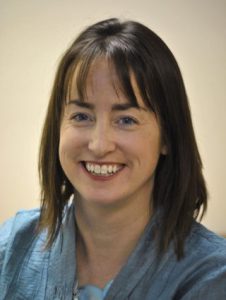Jessica Faul

Co-investigator
@jfaul99
What is your area of research or expertise that you bring to the Landscapes collaboration?
I am a co-investigator of the Health and Retirement Study (HRS) and an epidemiologist by training. I am the person who is responsible for all the biological data collection that the HRS does, and I’m also a Co-director of the ISR biospecimen lab. I am also the P.I. of an R25 grant, “Genomics for Social Scientists” that teaches social scientists about genetics and epigenetics. I’m bringing my 20 years experience using the HRS data, and use of biomarkers and genetic data in social science and health research to this team.
What do you find challenging or exciting about interdisciplinary collaboration?
I mostly find it very exciting; that’s why I’m here at ISR. I think this is a place where a lot of really good interdisciplinary work is happening, and I think that is crucial to advance any field forward.
One thing that’s challenging is that often we use different terminology to describe the same things-–the same relationships. For example, how we describe direct and indirect effects, or how we describe mediating or moderating relationships: every field calls those things something different. We need to be patient with each other and spend time explaining some of the terminology we use in our own disciplines, to make sure our interdisciplinary research groups can understand our intentions. I think this kind of work takes a little more time and patience, but it’s fruitful and worth it.
What’s one common misconception about your area of research that you’d like to dispel?
We all know that surveys have measurement bias: for example, maybe not everyone interprets a question the same way, or they don’t answer it in the same way. We also know that there are mode effects: telephone vs. face-to-face vs. answering a survey on paper. Oftentimes people think that biology doesn’t have that same kind of variability and it very much does. Just because it’s something I measured from your blood or your saliva, doesn’t mean there isn’t measurement error! Biology is imperfect, and all the same things we worry about in survey methodology and survey work actually are relevant in biology too.
How did you become interested in structural racism and health?
I am a social epidemiologist by training, so the relationship between the social and contextual factors and health has always been of interest to me. In particular I do research on health-related inequalities so, measures and concepts of structural racism play into that work. I’m really excited to be working with people who are experts in these measures, because I think that’s really going to help us understand some of why we see differences between groups.
What’s the academic path that brought you to where you are now?
It was a meandering one! I was a Japanese language and literature major in college, mostly so I could study abroad for a year and have it count toward my major and not have to stay in school longer. I always knew I wanted to continue in the sciences, but I thought that meant Med. school. After taking a biostatistics class, I realized that that was how my brain worked and I loved it, and I was pretty much hooked from that point on. I realized I could still be involved in health and the public health field, but it didn’t necessarily have to be as a clinician. Now I still get to study health but it’s at a population level rather than an individual level. But that took a really long time to figure out, and I did a lot of weird things in between. That’s how we get to where we’re supposed to be: by a sequence of wrong turns.
If you had the opportunity to get one question answered by an omniscient being, what would you ask? (this is meant to be a lighthearted question–we’re trying to get to the heart of what you are most curious about, whether within your field of research or beyond! Feel free to think big!)
I am someone who very much tries to live in the present. I don’t want to know anything about the future. I wouldn’t want to ask any scientific questions because I think it would take away the fun of discovery. So in a really shallow and self-serving way, the only thing I want to know is what my dogs are thinking. I don’t want the answer to any of life’s big questions, I’d only want to know about my dogs!
Anything else you want to share?
As I said before, I am really excited to be working with this team. I think I am going to learn a lot!
